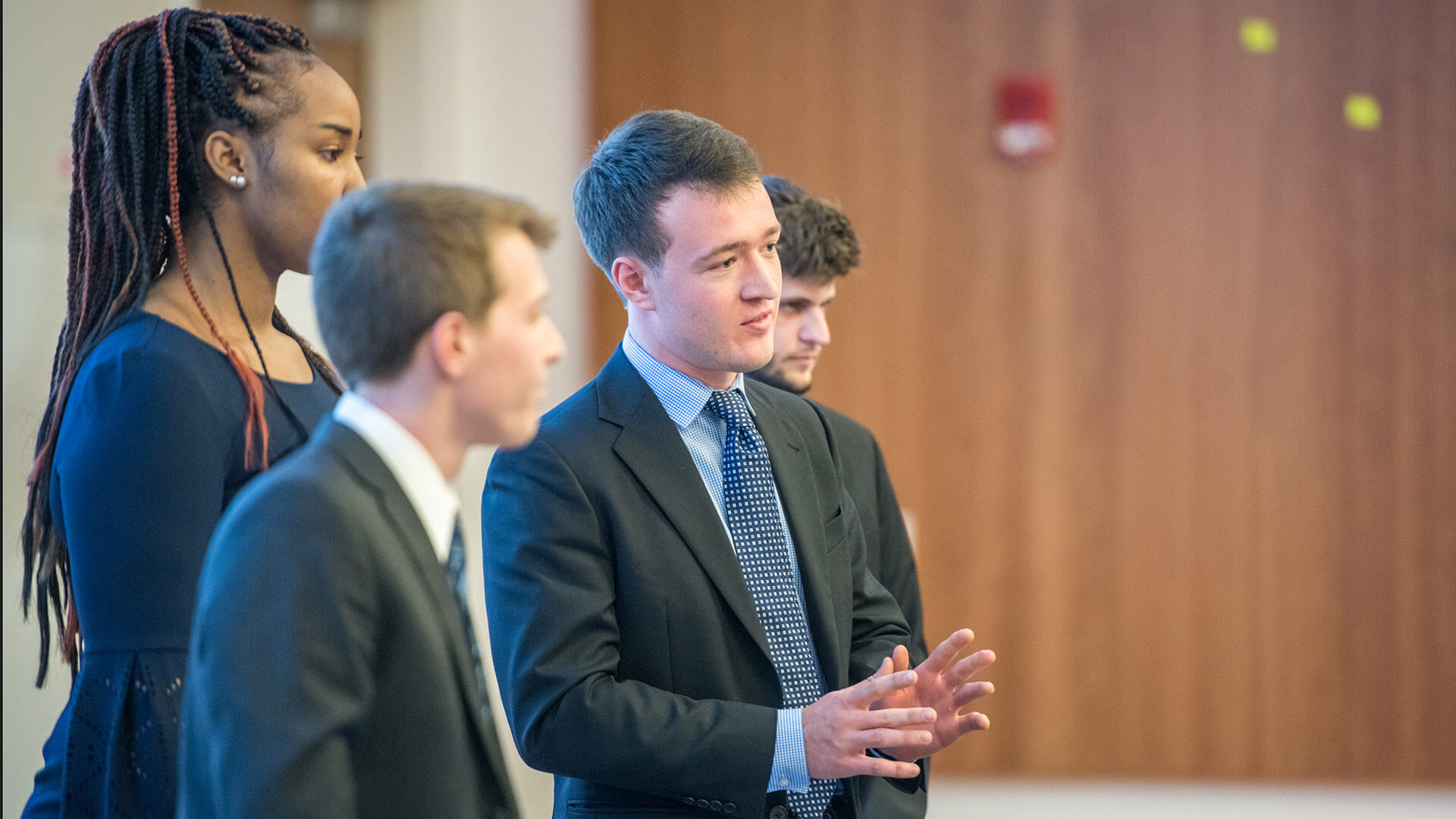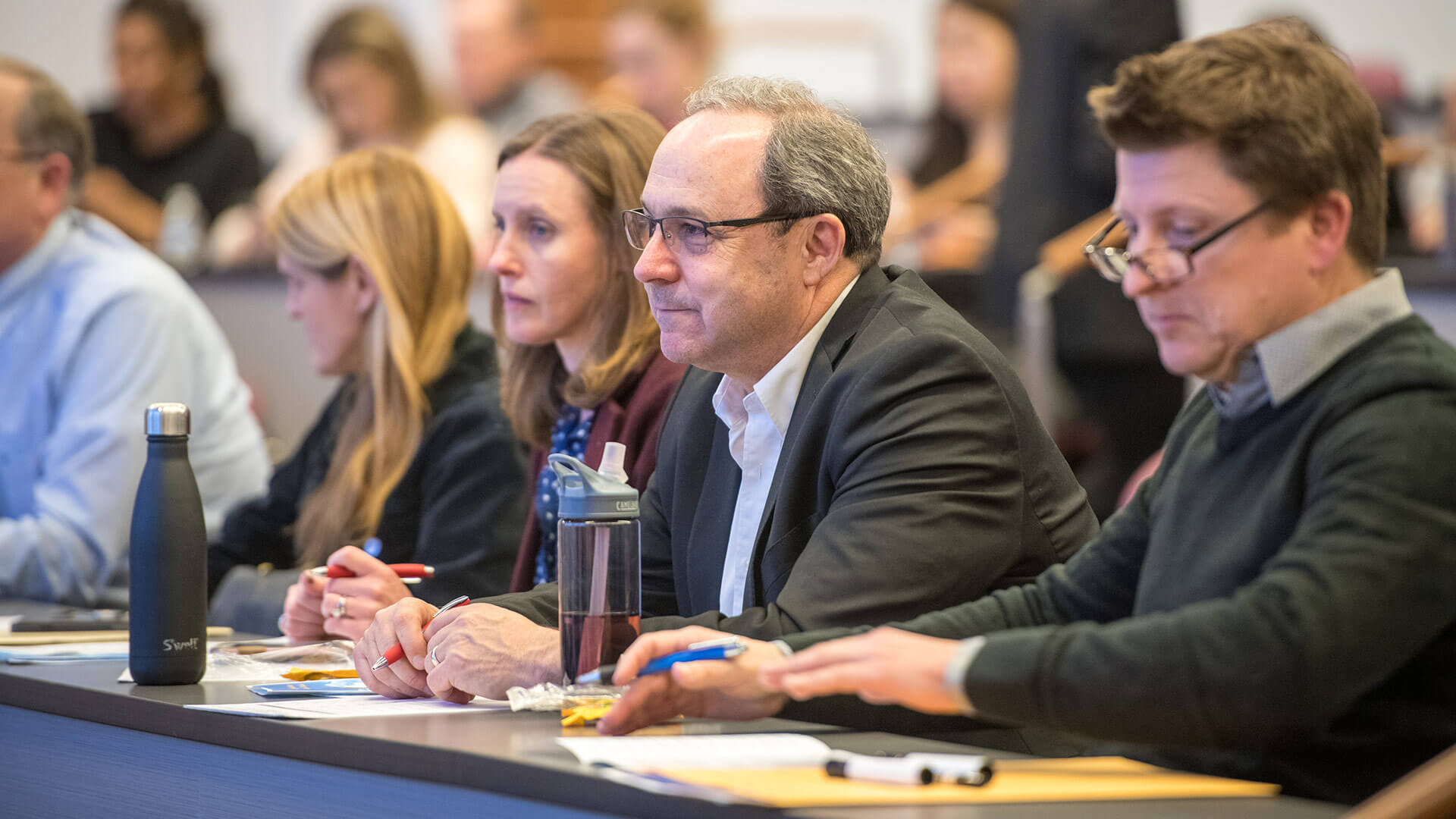- February 27, 2019
- By Carly Taylor ’19
Agriculture has been the cornerstone of Maryland’s economy since the 17th century, but it’s getting a distinctly 21st century take from students throughout the university in an entrepreneurial showdown tonight.
The College of Agriculture and Natural Resources (AGNR), the Dingman Center for Entrepreneurship, and Academy for Innovation and Entrepreneurship are partnering to host the third annual AgEnterprise Challenge from 6 to 8 p.m. in 1224 Edward St. John Learning and Teaching Center.
Eight teams will showcase their best business ideas ranging from technology to speed up plant growth to methods of reducing runoff into the Chesapeake Bay and incentivizing Earth-saving activities.
“Innovation drives success in agriculture and we want students to think of themselves and act entrepreneurially,” said Larisa Cioaca, a lecturer and adviser for the Institute of Applied Agriculture and member of the Agriculture Innovation to Commercialization committee. “It’s needed to make sure the industry does well in the 21st century.”
The teams will each pitch their ideas to a panel of judges, including a representative from the 2018 winner, which presented an alternative algae fertilizer and is now conducting research and development to bring it to the market. This year’s teams have the opportunity to take their innovations to the next level, too, with a total of $5,500 up for grabs: $2,500 for first place, $1,500 for second, and $750 for third place and audience choice. Here’s what they’re proposing at tonight’s showdown:
Bay-Be-Blue is presenting an alternative cover crop seeding method that uses explosions rather than airplanes. Aerial seeding is an important tool for establishing cover crops as early as possible and preventing erosion and runoff, but this method is not available in some parts of Maryland due to field size, population concentration or aviation rules. Bay-Be-Blue believes this alternative method would reduce the regional gap in aerial seeding capabilities.
CropSavior is a software application to help farmers with integrated pest management. It suggests farming solutions based on information users provide about crop type, location, method of growth and severity of the pest problem. The software would also alert farmers about infestations or diseases reported by others in the area.
The Mobile Aquaponic Teaching Assistant is a mobile aquarium that would introduce young students to the co-dependent systems in aquaponics, which combines raising aquatic plants and animals. The team determined that current teaching tools don’t convey the complexity of life cycles in the environment.
“It’s difficult to demonstrate biological processes through online learning simulations,” said team member Alice Xie. “This system allows you to watch the life cycles in-person to better teach students.”
Green Growth Tunnel is a device that would help farmers increase harvest volume using a rapid safe growing system using a radio wave accelerator that safely increases growth rates while helping decrease farms’ use of energy, labor, water and fertilizer.
Sedipot would create compostable, zero-waste gardening pots and seed starters. The pot would be made of algae-based material that doubles as fertilizer once it’s buried in the ground. While other fertilizers are harmful to the Chesapeake Bay, in part due to runoff from farming activities, this product would benefit bay health by removing potentially damaging excess nutrients.
Green Roots is proposing sustainably grown produce by students for students to address food insecurity on campus. The group would start a farm using hydroponics, an environmentally-friendly practice of feeding plants with a nutrient-rich solution delivered through tubes. The on-campus farm would eliminate some labor and transportation costs while providing affordable, fresh produce, said team member Michael Wijesignhe.
FarmatroniX wants to address the labor shortage in farming with an irrigation system powered by artificial intelligence that would include integrated sensors to automate and manage greenhouses, nurseries and urban landscapes.
Green for Green is a proposed app that would partner with local, sustainable businesses and campus environmental clubs and organizations to reward students with discounts when they participate in environmentally friendly tasks and events.
“Most students said they want to help the environment, but they don’t find certain tasks convenient for them,” said Meghan Stromberg, lead innovator for the project. “College students are always on their phones, so an app would be more convenient for them.”
